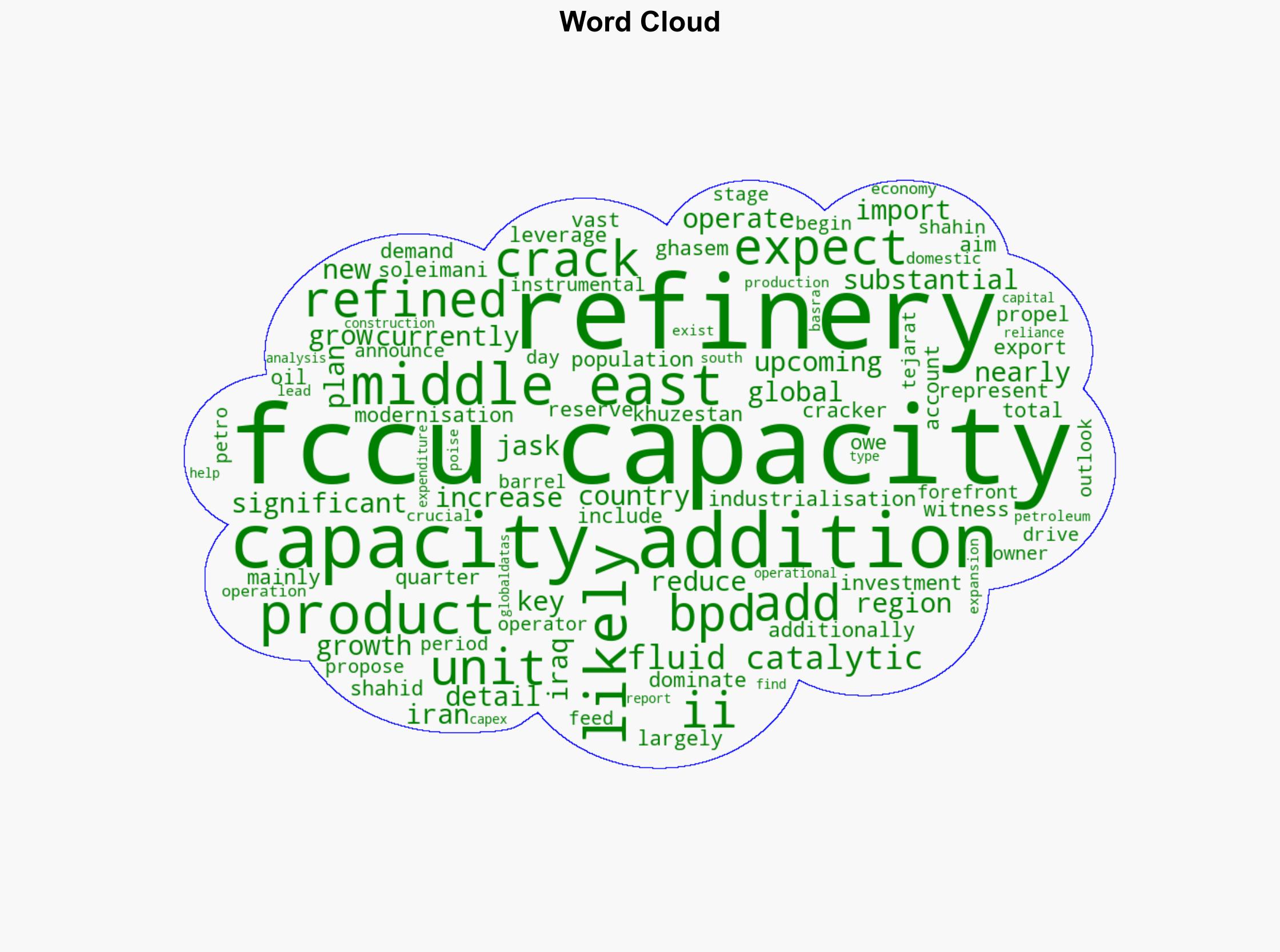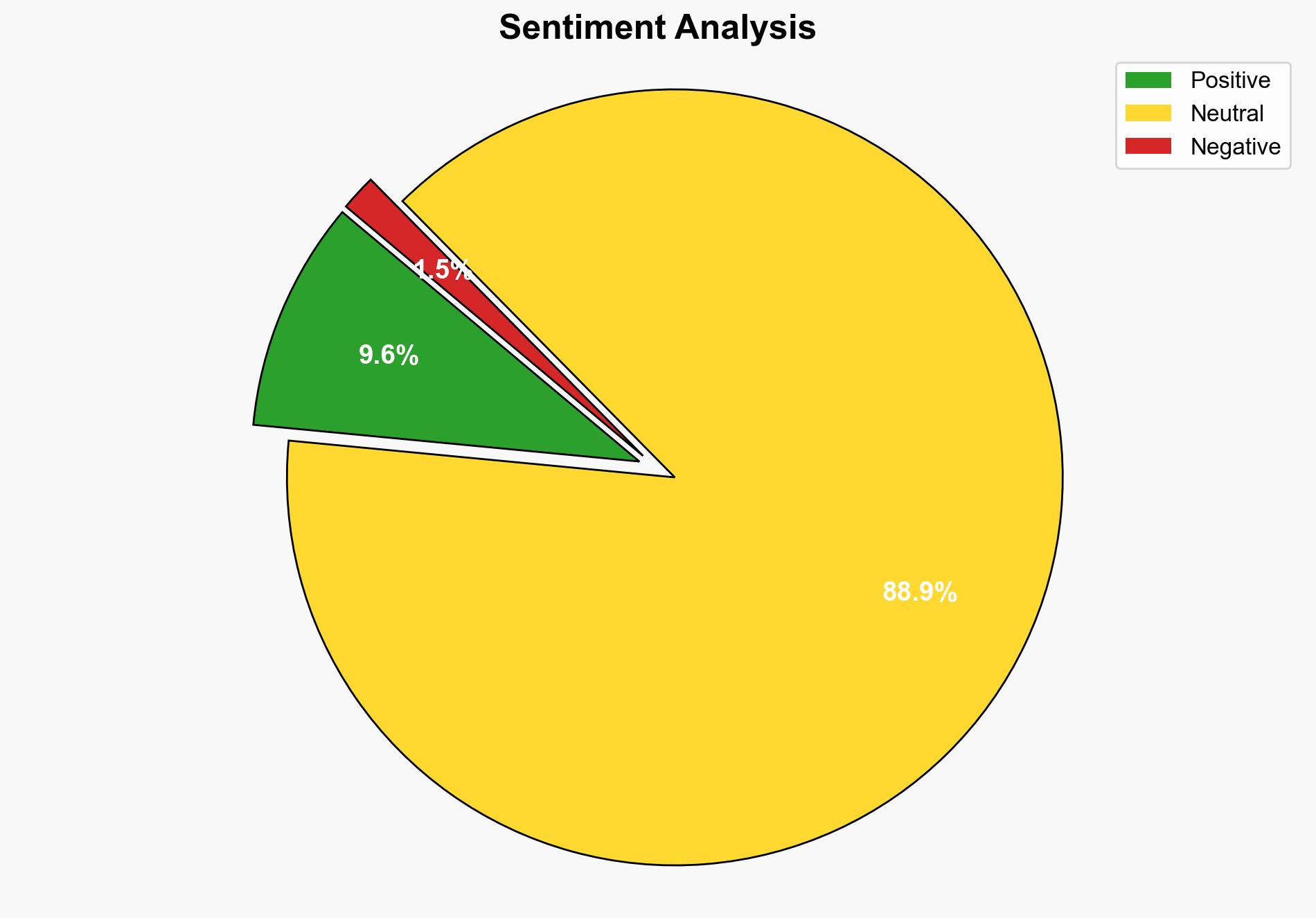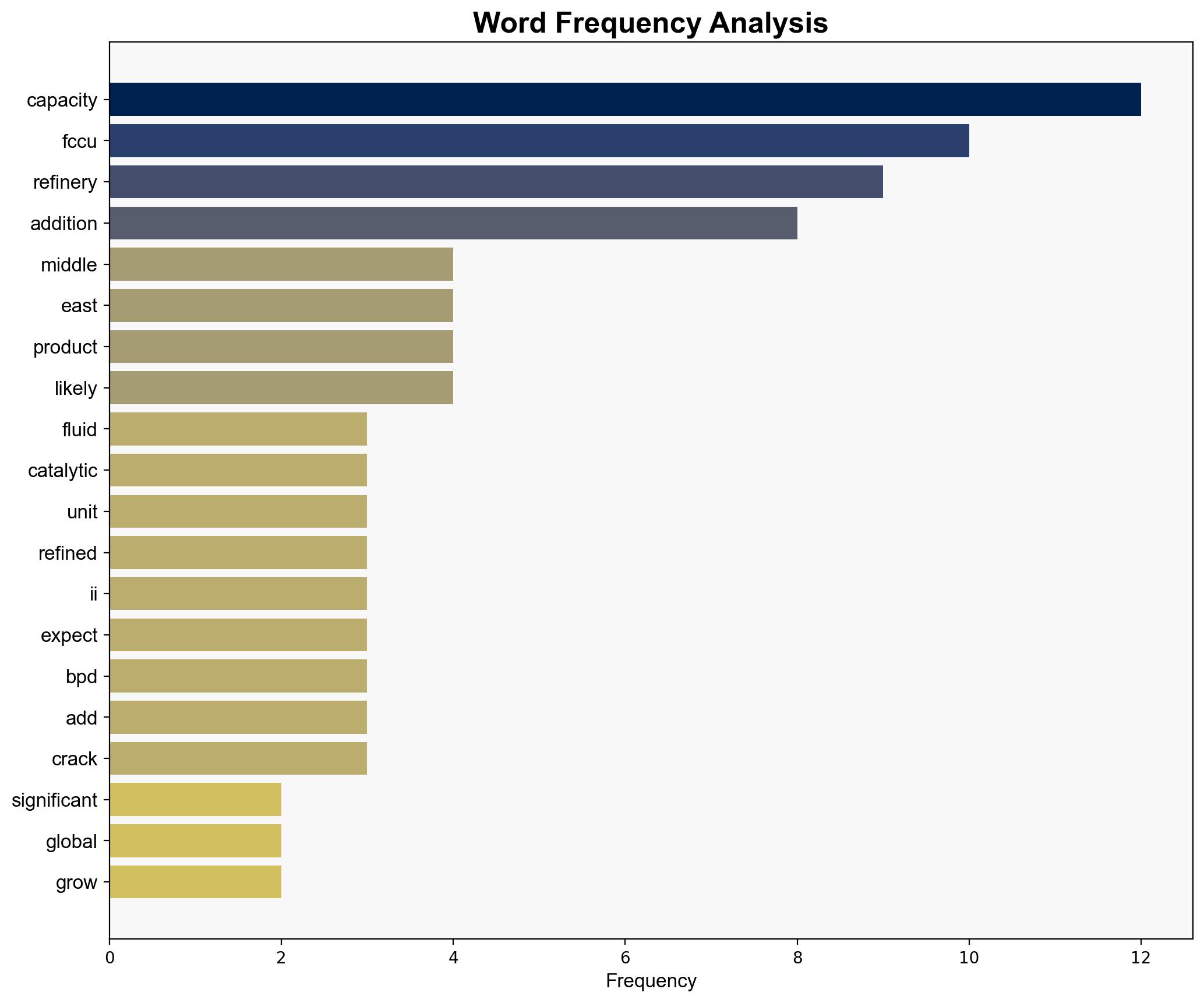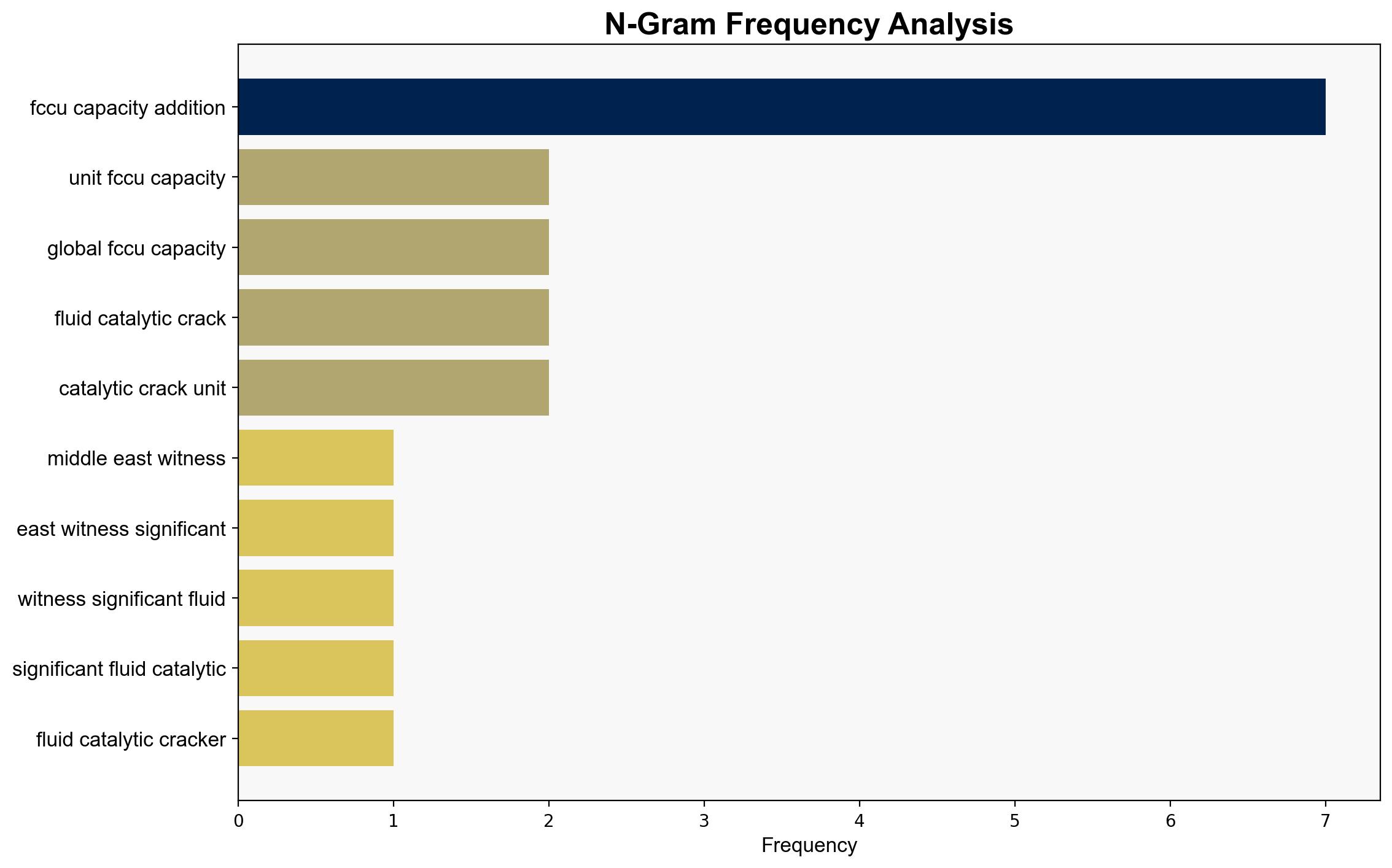Iraq at the forefront of FCCU capacity additions in the Middle East by 2030 – Offshore Technology
Published on: 2025-04-14
Intelligence Report: Iraq at the forefront of FCCU capacity additions in the Middle East by 2030 – Offshore Technology
1. BLUF (Bottom Line Up Front)
Iraq is positioned to significantly increase its fluid catalytic cracker units (FCCU) capacity by 2030, contributing to over a quarter of the global FCCU capacity additions. This growth is driven by increased demand for refined products due to population growth and industrialization. Iran is expected to lead within the region, with Iraq following closely. Strategic investments in refinery modernization and expansion are crucial for both countries to enhance domestic production and reduce reliance on imports.
2. Detailed Analysis
The following structured analytic techniques have been applied for this analysis:
General Analysis
The Middle East’s FCCU capacity expansion is primarily fueled by the need to meet rising domestic and international demand for refined petroleum products. Iran’s significant investments in refineries like Jask II, Shahid Ghasem Soleimani, and Khuzestan are pivotal. Iraq’s Basra II refinery is also a key player, expected to add 75,000 barrels per day by 2027. These developments are crucial for economic growth and energy security in the region.
3. Implications and Strategic Risks
The expansion of FCCU capacity in the Middle East presents both opportunities and risks. Economically, it enhances energy independence and export potential. However, geopolitical tensions and fluctuating oil prices pose risks to project timelines and profitability. Additionally, environmental concerns and regulatory changes could impact the pace of development.
4. Recommendations and Outlook
Recommendations:
- Enhance regional cooperation to mitigate geopolitical risks and ensure stable project execution.
- Invest in sustainable technologies to address environmental concerns and comply with international regulations.
- Strengthen infrastructure to support increased production and export capabilities.
Outlook:
In a best-case scenario, the Middle East could achieve significant economic growth and energy security by 2030, with successful FCCU expansions. In a worst-case scenario, geopolitical instability and environmental challenges could delay projects and reduce profitability. The most likely outcome involves steady progress with periodic disruptions due to external factors.
5. Key Individuals and Entities
The report highlights significant entities such as Petro Tejarat Shahin Co and South Refineries Co, which are instrumental in the FCCU capacity additions in Iran and Iraq, respectively. These organizations are pivotal to the successful implementation and operation of the planned refineries.





